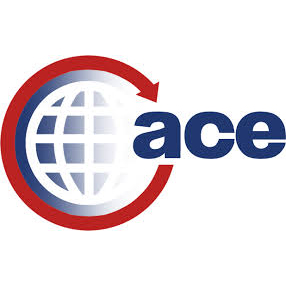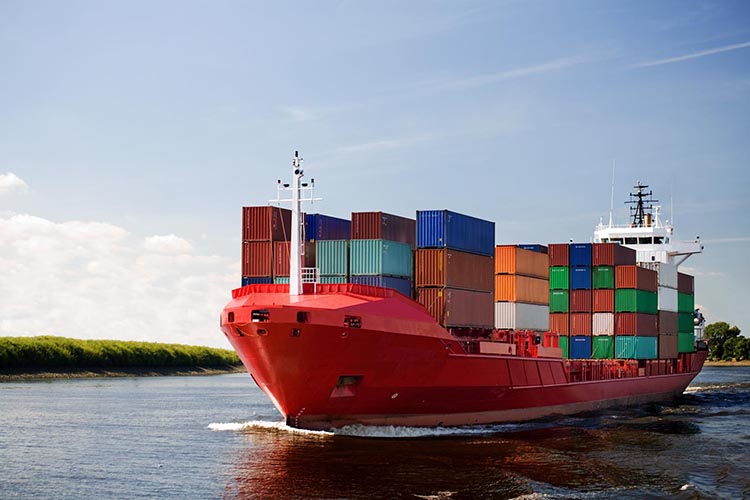
FTZ’ine February 2020
February 4, 2020
FTZ’ine April 2020
April 2, 2020Coronavirus
One word pretty much sums up the news from last month, whether the topic was economics, trade, or politics.
Soccer teams playing to empty stadiums in Europe. Commercial flight cancellations reducing air freight capacity. A 15 year bull market coming to a screeching halt. Factories, especially in China’s Hubei Province, completely closed or struggling to produce without employees who have been quarantined. The affects of the coronavirus have now extended far beyond those who have actually contracted the disease. The new coronavirus named COVID-19 is thought to have been introduced to humans in December at a live wild animal market in the Chinese city of Wuhan. The effects are still unfolding as the virus continues to spread, highlighting the dependence the United States has on its global trading partners.

Top Story: COVID-19 Impact On Foreign-Trade Zones Expands
Tech Tip
Planning to apply for CTPAT soon? Well, you may have to rethink your timing - CBP has suspended application submission from January 1, 2020, through June 1, 2020.
The application process for the CTPAT program is now only done online. The application is completed in the CTPAT Portal in a two-step process. First, a company representative will create a Company Profile. Completion of the Company Profile will result in the representative receiving an account on the CTPAT Portal. Then the required Security Profile can be completed in the portal.
CBP recently revamped the CTPAT program and introduced “New Minimum Security Criteria” or MSC. Those criteria are published on CBP’s website, but the CTPAT portal is not yet updated with the new criteria. Until this is completed, CBP has suspended all applications to ensure that new applications conform to the new criteria. In addition, if your security profile is due during the months of March, April or May – you will ignore the due date and complete/submit the security profile after June 1, 2020, when the new security profile in the portal is ready.
Want more information about joining the CTPAT or other Trusted Trader programs? Submit your request here.


Boeing Asks For End To Tax Breaks To Avoid WTO Sanctions
U.S. Trade Deficit Narrows As Both Imports And Exports Drop


Trip Revives Prospects For India Trade Deal
APHIS-Lacey Finalizes Relaxed Reporting Requirements For FTZs
The Animal and Plant Health Inspection Service (APHIS) announced their final rule promulgating an allowance for de minimus imports of Lacey Act materials that will no longer require a declaration.
The new de minimus exception to the declaration requirement will apply to all products subject to the Lacey Act. Importers of articles currently listed on the Lacey Act enforcement schedule, including FTZs, will receive the most immediate benefit from the new exception.
APHIS is adopting a de minimus threshold of no more than 5 percent of the total weight of the individual product unit, provided that the total weight per 10-digit HTSUS provision in an entry does not exceed 2.9 kilograms. APHIS-Lacey declarations remain limited to entry summary (7501) and no provision for filing at the time of admission was announced.
APHIS had originally proposed additional de minimus exceptions based on volume or value but eliminated them from the final rule. APHIS had also considered a ‘grace period’ to allow all declarations to be filed after importation, but this proposal was also dropped from the final rule which goes into effect on April 1, 2020.
The time of declaration filing for APHIS-Lacey Act materials is guided by the Lacey Act definition of ‘import’ which is more in line with the concept of ‘entry into U.S. commerce’. For this reason required declarations are filed at the time of entry summary and are not required for in-bond movements, FTZ admissions, or bonded warehouse entry. The APHIS finding with respect to the definition of ‘import’ is contrary to a finding by U.S. Customs that an import has already occurred at the time a product is admitted to a Foreign-Trade Zone, and therefore is ineligible for informal de minimus entry procedures at the time of withdrawal from the zone.
APHIS also reiterated their Federal Register notice on February 3, 2009 (74 FR 5911, Docket No. APHIS-2008-0119) which confirmed that they did not intend to enforce the declaration requirement for informal entries such as Section 321 de minimus entries. By extension, therefore, importers can sidestep Lacey Act reporting requirements for shipments under $800 in total value which use informal entry procedures.
The enforcement schedule is available on the APHIS website, organized by HTS code.
The Lacey Act, first enacted in 1900, combats trafficking in illegally taken wildlife, fish, or plants. The Food, Conservation and Energy Act of 2008, effective May 22, 2008, amended the Lacey Act by expanding its protection to a broader range of plants and plant products.

UK-EU Trade Negotiations Off To A Rough Start, Concerning FTZ Users

FTZ Board Activity
- Warehouse Specialists, LLC submitted an application for subzone status for its 48-acre facility within FTZ 107 in Council Bluffs, Iowa. MORE
- Regent Tek Industries, Inc. submitted a Notification of Proposed Production Activity for thermoplastic road marking material within FTZ 52 in Shirley, New York. MORE
- Ricoh Electronics, Inc. received the authorization of production activity for thermal paper and film within FTZ 26 in Lawrenceville and Buford, Georgia. MORE
- Puerto Rico Storage & Distribution, Inc. submitted an application for subzone status for its 3.9-acre facility within FTZ 61 in Aguadilla, Puerto Rico. MORE
- Steelite International USA, Inc. received the authorization of production activity for hospitality industry serveware within FTZ 33 in New Castle, Pennsylvania. MORE
- Traxys Cometals USA, LLC submitted a Notification of Proposed Production Activity to add additional components for manganese and aluminum alloying agents within FTZ 158 in Burnsville, Mississippi. MORE
- Seadrill Americas Inc. submitted an application for subzone status for its 51.2-acre facility within FTZ 124 in New Iberia, Louisiana. MORE
- Winnebago Industries, Inc. applied to expand Subzone 107A by adding sites in both Forest City and Charles City, Iowa. MORE
- Andersen Regional Manufacturing, Inc. submitted a Notification of Proposed Production Activity for windows for residential and commercial buildings within FTZ 277 in Goodyear, Arizona. MORE
- Cheniere Energy, Inc. received the authorization of production activity for liquified natural gas processing within FTZ 122 in Portland, Texas. MORE
- Kubota North America Corporation received the authorization of production activity for additional components of agricultural and specialty vehicles within FTZ 26P in Jefferson and Gainesville, Georgia. MORE
- Waters Technologies Corporation submitted an application for subzone status for its 44.7-acre facility within FTZ 27 in Milford, Massachusetts. MORE
Coronavirus – one word pretty much sums up the news from last month, whether the topic was economics, trade, or politics.
Soccer teams playing to empty stadiums in Europe. Commercial flight cancellations reducing air freight capacity. A 15 year bull market coming to a screeching halt. Factories, especially in China’s Hubei Province, completely closed or struggling to produce without employees who have been quarantined. The affects of the coronavirus have now extended far beyond those who have actually contracted the disease. The new coronavirus named COVID-19 is thought to have been introduced to humans in December at a live wild animal market in the Chinese city of Wuhan. The effects are still unfolding as the virus continues to spread, highlighting the dependence the United States has on its global trading partners.

